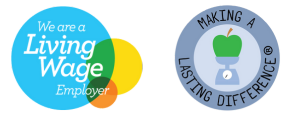Independent advocacy
Independent advocacy is about speaking up for, and standing alongside individuals or groups, and not being influenced by the views of others. Fundamentally, it is about everyone having the right to a voice: addressing barriers and imbalances of power, and ensuring that an individual’s rights are recognised, respected, and secured.
Activist
An activist is a person who campaigns to bring about political or social change.
Advocacy partner
An advocacy partner is a person who accesses independent advocacy. It is the preferred term because it emphasises the independent advocate and the person they are supporting working as equal partners. Some independent advocacy organisations also use client or service user.
Capacity
Ability to reason, make decisions and consider choices, express views and receive and understand information. The law assumes that people have capacity unless a doctor’s assessment shows that a person lacks capacity.
Commissioner
Representatives from the Local Authority, Health Board or Health and Social Care Partnership who fund independent advocacy.
Community of interest
A community of interest is a group of people who have shared experiences, characteristics or common interests and wish to come together to address issues that are important to them. Collective advocacy groups often bring together ‘communities of interest’, for example, people with learning disabilities or mental health conditions.
Conflict of interest
Sometimes there can be conflicts of interest for those supporting an individual or group, for instance where there are assumptions about ‘what is best’ for them. Independent advocacy is as free as possible from conflicts of interest, being completely separate from service providers and funders and with the organisation involved providing no services other than advocacy. It is structurally, financially and psychologically free from interests such as being a provider of services, a gatekeeper of services, a funder of services, a statutory body or family and friends.
Independent advocacy organisation
An independent advocacy organisation only provides independent advocacy and all the activities it undertakes are about providing, promoting, supporting and advocating independent advocacy. Independence means that it does not provide any other services and is structurally, financially and psychologically separate from other organisations and interests. You can find out more about these components in the ‘Independent Advocacy Principles, Standards and Code of Best Practice’. SIAA’s members are all independent advocacy organisations.
Non-instructed advocacy
Non-instructed advocacy happens when there are issues with a person’s capacity perhaps due to dementia, or limited communication due to a physical disability or a learning disability. In such situations a non-instructed advocate seeks to uphold their advocacy partner’s rights and ensure that decisions are taken with full consideration of their unique preferences, rights and perspectives.

